Lung Cancer: Unveiling the Early Morning Warning Signs You Shouldn't Ignore
Posted by Pankaj Dhiman on Oct 18th 2023
Have you ever woken up in the morning, only to feel something unusual, something that makes you question your health? Sometimes, your body sends signals that we tend to ignore or attribute to minor issues. However, when it comes to lung cancer, being vigilant is crucial. In this blog, we're going to delve into a topic that's not often discussed: the warning signs of lung cancer that may appear first thing in the morning.
Lung cancer is a significant health concern, and early detection can make a world of difference in treatment outcomes. While we hope you never face this diagnosis, being aware of potential indicators can help you catch the disease at an early, more treatable stage. Here are four warning signs you might experience in the morning, which should not be taken lightly.
1. Persistent Cough
Waking up with a persistent cough is something many people experience from time to time. While most morning coughs are benign and related to colds or allergies, a chronic cough that lingers for weeks or months could be a red flag for lung cancer. This cough might be dry or produce mucus, and it may worsen over time. If you notice this, it's essential to consult your healthcare provider for a thorough evaluation.
2. Shortness of Breath
Feeling short of breath upon waking can be a concerning sign. Lung cancer can obstruct airways and reduce lung function, leading to difficulty breathing. This symptom can often be mistaken for other conditions like asthma or even just a lack of fitness. However, if it persists or worsens, especially if you're a non-smoker or have no history of lung issues, it's vital to discuss this with a healthcare professional.
3. Chest Pain
Chest pain is a symptom that can be associated with many health issues, including heart problems. But if you consistently experience chest pain in the morning, and it's not related to any other known condition, it's worth investigating. Lung cancer can cause chest discomfort, particularly if it has spread to the chest wall or the lining around the lungs. Your doctor can help determine the cause and recommend further tests if necessary.
4. Unexplained Weight Loss
Unexpected weight loss can be a symptom of several health problems, including lung cancer. It's particularly concerning when it occurs without a change in diet or physical activity. If you're shedding pounds unintentionally and experience any of the other symptoms mentioned, it's time to consult a healthcare provider.
It's essential to remember that these signs don't necessarily guarantee lung cancer. Many other less severe conditions can cause similar symptoms. However, they should serve as a wake-up call to pay attention to your health and seek professional advice.
In addition to these morning-specific warning signs, it's important to be aware of other common symptoms of lung cancer:
- Wheezing: A whistling sound when you breathe can be a sign of lung cancer.
- Coughing up Blood: This is a clear indication that something is wrong and requires immediate medical attention.
- Hoarseness: If your voice becomes hoarse and stays that way for an extended period, it could be due to a tumor affecting your vocal cords.
Remember, early detection is key to successful treatment. If you experience any of these symptoms, especially if they persist or worsen over time, consult a healthcare professional promptly. Don't let fear or uncertainty prevent you from taking action.
Reducing the Risk of Lung Cancer
Prevention is always better than cure, and when it comes to lung cancer, there are steps you can take to reduce your risk:
1. Don't Smoke
If you're a smoker, the most effective way to reduce your risk of lung cancer is to quit smoking. It's never too late to stop, and the benefits are immediate.
2. Avoid Secondhand Smoke
Exposure to secondhand smoke can also increase your risk of lung cancer. Make sure you're not in environments where others smoke, especially indoors.
3. Protect Yourself from Radon
Radon is a naturally occurring radioactive gas that can seep into homes. It's a known cause of lung cancer. Test your home for radon and take steps to reduce exposure if necessary.
4. Be Mindful of Workplace Hazards
If you work in an industry with exposure to carcinogens like asbestos and other chemicals, take appropriate precautions. Use protective equipment and follow safety guidelines.
5. Maintain a Healthy Diet and Lifestyle
A balanced diet and regular exercise can contribute to your overall health and potentially reduce the risk of cancer. Ensure you eat plenty of fruits and vegetables and maintain a healthy weight.
6. Know Your Family History
Some people may be at higher risk due to a family history of lung cancer or other lung diseases. If you have a family history, discuss it with your healthcare provider.
7. Regular Health Checkups
Even if you don't have symptoms or risk factors, regular health checkups can help with early detection. Your healthcare provider may recommend lung cancer screening in certain cases.
In conclusion, lung cancer is a severe health concern, and early detection is vital for successful treatment. While the morning warning signs mentioned here are not exclusive to lung cancer, they should not be ignored, especially if they persist or worsen. Don't hesitate to seek medical advice if you're experiencing any of these symptoms.
Prevention is equally important. If you're a smoker, quitting is the single most effective step you can take to reduce your risk of lung cancer. Avoiding exposure to secondhand smoke, radon, and workplace hazards is also crucial. Additionally, maintaining a healthy lifestyle and staying informed about your family history can make a significant difference.
Your health is your most valuable asset, and being aware of potential signs and taking preventive measures can help ensure a brighter, healthier future. Stay informed, stay vigilant, and always prioritize your well-being





























































